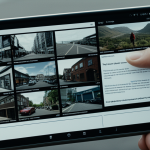Key UK technological innovations transforming healthcare
The UK healthcare technology landscape is rapidly evolving, driven by innovative developments in AI in healthcare, digital health solutions, and advanced medical devices. Artificial intelligence is making significant strides, especially in diagnostics, where AI algorithms analyze medical images and patient data with impressive accuracy. This leads to faster, more precise diagnoses and improved patient outcomes.
Digital health solutions have become vital, enabling remote care and telemedicine services. These technologies allow patients to consult healthcare professionals from home, reducing the need for hospital visits and easing NHS workload. Remote monitoring devices track vital signs continuously, alerting clinicians to changes that may require immediate attention.
Also to read : How Can UK Technology Innovate in a Post-Pandemic World?
UK companies are at the forefront of developing cutting-edge medical devices, including wearable health tech and innovative diagnostic tools. These devices integrate seamlessly with digital platforms to provide comprehensive health management. As a result, patients receive more personalized and proactive care.
The combined impact of AI, digital health, and medical devices forms the backbone of the UK’s healthcare transformation, making care more accessible, efficient, and tailored to individual needs. These innovations highlight the importance of technology in shaping a sustainable healthcare future.
In the same genre : Craft your perfect video storyboard in minutes with ease
Real-world case studies: Impact of technology on patient care
Exploring case studies UK healthcare reveals tangible benefits of AI and digital health technologies on patient care impact. For example, several NHS hospitals have implemented AI in healthcare to improve diagnostic accuracy. One case showed AI algorithms detecting early signs of chronic diseases faster than traditional methods. This led to timely interventions, significantly enhancing healthcare outcomes.
Remote monitoring devices integrated with digital health platforms illustrate another success. Patients with heart conditions use wearable devices that continuously track vital signs. Data is transmitted to clinicians, reducing unnecessary hospital admissions by flagging early warning signs. This not only improves patient quality of life but also optimizes NHS resources.
Additionally, tech innovations support patient treatments through personalized digital platforms. These platforms analyze patient data to tailor medication and care plans, resulting in improved adherence and recovery rates. The aggregated evidence from these case studies UK healthcare underscores how these technologies bring measurable improvements in both patient care impact and clinical innovation.
Overall, these real-world examples demonstrate that integrating AI, digital health, and medical devices drives better healthcare outcomes, offering scalable solutions aligned with NHS priorities and patient needs.
Leading UK companies and institutions pioneering healthcare advances
This thriving ecosystem showcases UK healthcare companies and health tech startups emerging as pioneers in medical innovation. Many startups focus on developing sophisticated medical devices that integrate AI algorithms for real-time diagnostics and patient monitoring. These advances empower clinicians with actionable insights, enhancing care precision.
Partnerships between leading universities and the NHS fuel institutional innovation. Collaborative research programs combine academic expertise and clinical experience, accelerating development of digital health solutions. For example, joint efforts often focus on refining AI in healthcare to ensure algorithms are clinically robust and ethically sound.
International collaborations also elevate the UK’s global standing in healthcare technology. By sharing knowledge and resources with global partners, UK companies tap into wider markets and cutting-edge research. This synergy speeds up bringing transformative tech innovations from labs to bedside.
In sum, the blend of innovative startups, strong institutional research, and international cooperation creates a dynamic environment. It continuously propels UK healthcare technology forward, ensuring patients benefit from the latest advances in diagnostics, digital health, and medical devices.
Government initiatives and public-private partnerships
The UK government healthcare innovation strategy plays a pivotal role in advancing healthcare technology. Central to this is NHS Digital, which drives the adoption and integration of digital solutions across the NHS infrastructure. By standardizing data systems and ensuring interoperability, NHS Digital enables smoother deployment of AI in healthcare and digital health services nationwide.
Funding programs spearheaded by the government provide vital support for health tech startups and extensive R&D initiatives. These investments reduce barriers for innovators developing novel medical devices and AI diagnostic tools, accelerating their journey from concept to clinical use. Public-private partnerships further amplify these efforts by fostering collaboration between industry leaders and healthcare providers.
Pilot programs exemplify this synergy, where NHS trusts partner with private companies to test cutting-edge digital health solutions and real-time patient monitoring devices. Such collaborations not only validate technology efficacy but also generate evidence essential for wider NHS adoption. Collectively, these government-driven initiatives and partnerships cultivate an environment conducive to sustained tech innovations that improve healthcare accessibility and quality across the UK.
Key UK technological innovations transforming healthcare
The landscape of UK healthcare technology is marked by rapid advancements in AI in healthcare, digital health, and medical devices, collectively improving patient outcomes. AI applications now enhance diagnostics by analyzing vast datasets and medical images with high accuracy. This precision accelerates early disease detection, enabling timely interventions that save lives.
Digital health solutions play a critical role in facilitating remote care and telemedicine. Such technologies allow patients to receive consultations and continuous monitoring from home, easing healthcare system burdens while maintaining high-quality patient care. Remote monitoring devices collect vital data, alerting clinicians to changes that indicate worsening conditions, which helps prevent hospital admissions.
UK companies excel in developing cutting-edge medical devices that integrate with digital systems. These include sophisticated wearables and real-time diagnostic tools designed for seamless patient use. The synergy between devices and AI enhances personalized treatment plans, promoting proactive healthcare management.
Together, these tech innovations form a robust framework for modernizing UK healthcare. Their emphasis on accuracy, accessibility, and integration ensures that healthcare evolves to meet complex patient needs efficiently and effectively.

